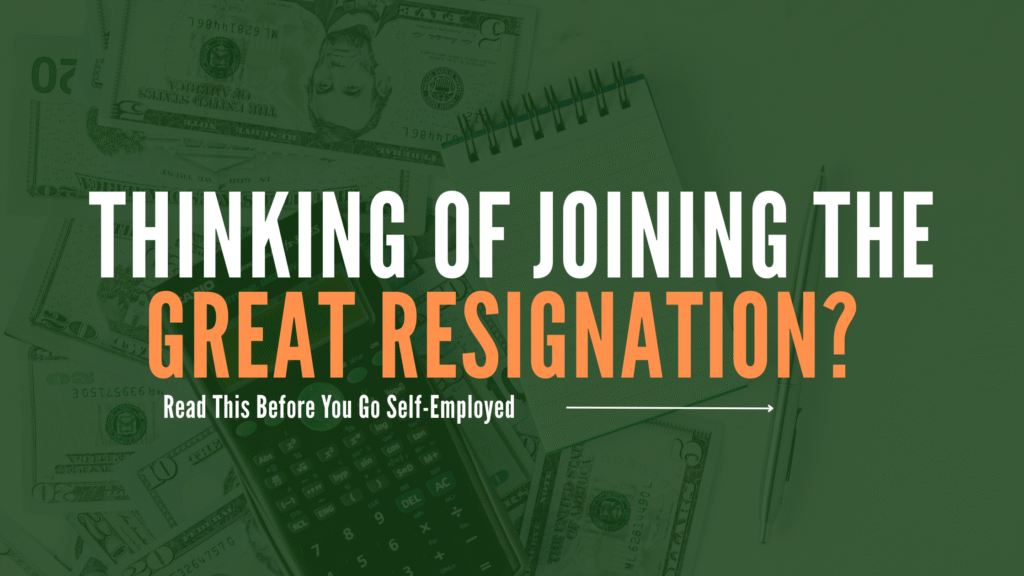So, you’re thinking about taking the leap ditching the 9-to-5, becoming your own boss, and joining the growing wave of self-employed go-getters.
Sounds empowering, right?
It can be. But before you order those “CEO of Me” business cards, let’s have a real talk about one thing most people overlook in the excitement: taxes.
Because while self-employment comes with freedom, flexibility, and the joy of setting your own hours… it also comes with some not-so-rosy realities—especially when it comes to the IRS.
The Myths (And Why They’re Dangerous)
One of the biggest traps new entrepreneurs fall into is believing the hype about all the “amazing” tax write-offs they’ll have.
Sorry to break it to you, but being self-employed doesn’t mean you can:
- Write off every single meal you eat
- Deduct tickets for taking friends to the big game
- Claim all your transportation costs
- Write off your entire rent or mortgage just because you have a home office
The IRS has very specific rules, and bending them can quickly turn your dream into a tax nightmare.
The Non-Tax Downsides People Forget About
When you’re employed, your company quietly covers (or subsidizes) a lot of costs you may not even think about—until they’re suddenly yours to pay.
As your own boss, you’ll now be footing the bill for:
- Health insurance
- Retirement plan contributions
- A company car (if you had one)
- Business trips with those little “fun” extras
- Late-night dinners that your employer used to cover
And then there’s the big one…
The Dreaded Self-Employment Tax
Here’s where the reality check comes in.
When you work for someone else, payroll taxes—Social Security and Medicare—are split between you and your employer.
When you’re self-employed? You pay both halves yourself.
For 2022, that’s 15.3% on the first $147,000 of net self-employment income. This breaks down into:
- 12.4% for Social Security
- 2.9% for Medicare
If your self-employment income is higher, the Social Security portion drops off after $147,000, but the Medicare tax keeps going—rising to 3.8% at certain income levels. And yes, that extra Medicare tax applies “to infinity and beyond,” as Buzz Lightyear would say.
Why This Matters Before You Leap
If you’re making good money, self-employment tax alone can be a big number. And here’s the kicker, you’ll need to make quarterly estimated tax payments to avoid IRS penalties.
Does that mean you shouldn’t become self-employed? Not necessarily. But it does mean you should make the decision with your eyes wide open, and ideally, with a professional in your corner who can help you plan ahead.
Self-employment can be exciting, empowering, and financially rewarding but only if you’re prepared for the realities, including taxes. The good news? With the right strategy, you can minimize surprises, stay compliant, and keep more of what you earn.
If you’re thinking about making the jump, let’s talk. We’ll help you understand exactly what’s ahead so you can make the smartest move for your future.

